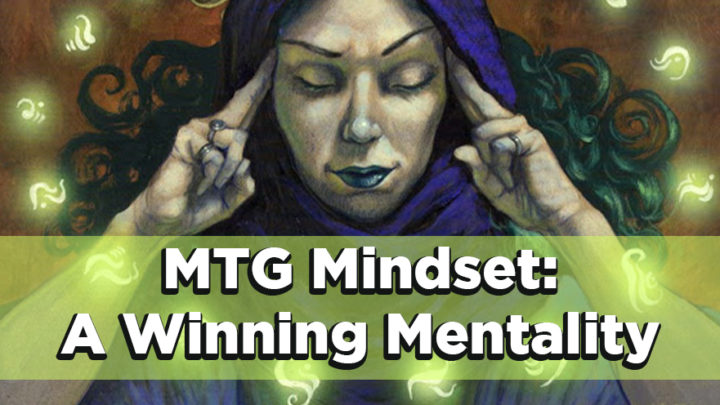There’s so much more to competitive Magic than what happens on the table. Most of the things holding players back from doing their best are rooted in their mentality about the game. Technical skill is vital to success, but if you’re looking at Magic through the wrong lens, what good does it do?
Today, I’m here to try and build the connection between winning the fight in your head and winning the fight on the table. Let’s talk about the pillars of a winning mentality.
Avoid Tilt
Many of us have heard about tilt — a mentality that undoes even the most capable Magic players — but what exactly is it?
In gaming, the phrase “on tilt” refers to a negative emotional response that players have about a game. While there’s a wide range of emotions players can feel while on tilt, frustration and anger are the most prevalent and widely talked about.
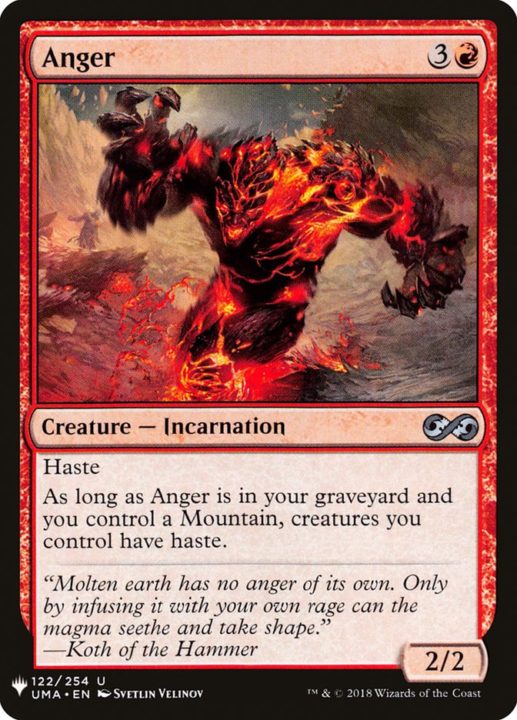
If you become angry during a game of Magic, you might lose your patience or struggle to think rationally. This can have dire consequences for your game, as Magic demands rational, logical thinking. If you’re on tilt, you may fail to consider all the potential plays that you or your opponent could make and lose the match as a result. However, if you do your best to remain calm, you’ll have an easier time thinking through all of the potential lines.
One of the easiest ways that I’ve found to avoid tilt is to stop worrying about things I can’t control. Did your opponent draw the fourth Lightning Bolt to end the game? Instead of being upset about it, think back to see if you could have played around that Lightning Bolt. If you could have, great — you’ve learned a lesson. If not, it doesn’t matter, and it’s best to move on to the next game.
Meanwhile, some players will be too hard on themselves when they’ve made a mistake. But beating yourself up isn’t productive, either. Instead, take yourself out of the equation: identify the mistake and decide what you’ll do differently the next time you’re in a similar situation.
The best way to handle tilt once you’re there is to take yourself out of the situation. Go for a walk, listen to music — do whatever you need to do to clear your head so that you don’t keep spiraling further.
Play to Learn
If you’re a competitive player like me, chances are that you place a lot of value on winning. But winning isn’t the only thing that matters, and you may put a detrimental amount of pressure on yourself if you focus on winning too much.
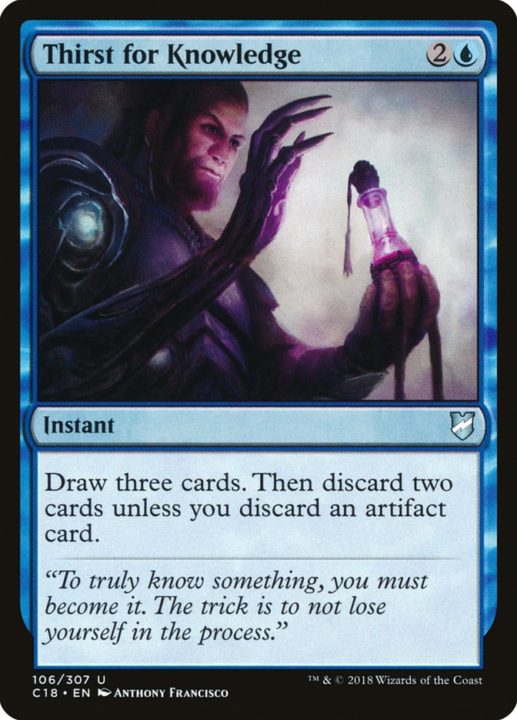
The best way to improve in this regard is to focus on the process, not on the results. Separating yourself and your self worth from your results is the first big step in this direction. You are not your trophies, or even lack thereof. You are a person who is always learning, and if you strive for continuous improvement, then results will follow.
There was a long period in my Magic career where I would beat myself up for not doing well in a tournament or failing to meet some lofty goal that I’d set for myself. Eventually, I was able to change the way I look at things and, instead of being upset about my losses, I became excited about improving enough to win those matches next time. I found that, when I felt motivated to work and learn something, Magic became a lot less stressful.
Know Your Strengths and Weaknesses
Of course, self-awareness is key to figuring out where you could stand to improve your game. Understanding what you’re good at lets you play to those strengths, both in-game and while preparing for a tournament. If your strength is doing combat math in racing situations, it would probably be best for you to play aggressive decks whenever possible.
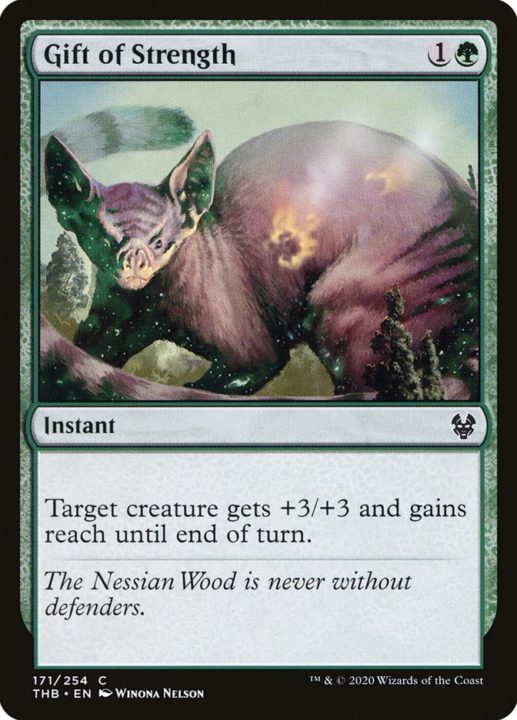
People tend to focus more on what they’re good at; it’s easy to identify our strengths and own up to them. But I believe you’ll get more out of identifying what your weaknesses are and working to fix those problems. Honesty is incredibly important during this process; do your best not to over- or underestimate your abilities.
One exercise I do every few months is to sit down and identify my biggest strength and my biggest weakness as a Magic player. Then, I look back on my answers from last time and see how much I’ve improved. If you find yourself struggling with identifying your strengths and weaknesses, try asking friends; they’ll be able to give you a more objective answer. If they’re willing to participate, it’s a good way to generate goals for the whole group to work on in coming months.
I’d love for you to try this exercise for yourself and then make a conscious effort to improve your weak point over the next few months. If that means playing decks you otherwise wouldn’t, give them an honest try!
Don’t Dismiss New Ideas
One of my biggest weaknesses in Magic is that I’m too quick to dismiss ideas that are new to me. Over the last few months, I’ve been making a conscious effort to give decks, cards, and ideas more thought in spots where I would have normally dismissed them. In fact, I wrote about this in my Grixis Death’s Shadow primer just last week!
When I first saw Lurrus of the Dream-Den, I didn’t think of all the ways that decks could adapt to its constraints. I dismissed it as a card that wouldn’t work in Grixis Death’s Shadow, but it turned out to be a very powerful option. My surface-level thinking cost me valuable time that I could have spent playing a better deck.
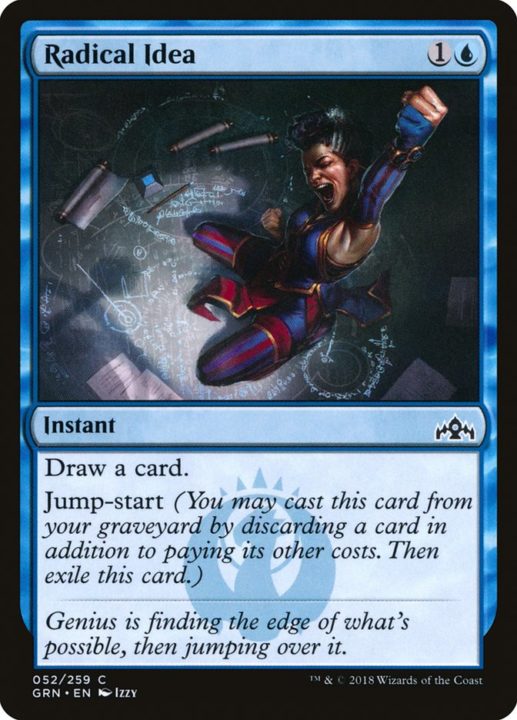
The biggest benefit of remaining open to new ideas is the flow of new information. Having access to more information is always beneficial, and it could help you make informed decisions in later matches. Every piece of tech starts with one person saying, “Wait a minute, this card might be good in this match-up!”
Tying it All Together
In the last few weeks, we’ve talked about variance and confirmation bias in Magic. As it turns out, a winning mindset will allow you to have a much healthier relationship with variance and overcome your confirmation biases. Once you let go of worrying about things you can’t control, concepts like variance are much easier to stomach. If you constantly look for ways to improve your game, you may just find that variance is less of a factor in your games. If you can avoid being dismissive of new ideas, you may at the same time be well on the way to eliminating confirmation biases from your card evaluation and decision making.
I hope these tips have helped you improve your Magic game. I’ll catch you all next week with some more Modern content! If you see any sweet decklists in the next week, be sure to send them my way on Twitter at @RappaciousOne!

Michael Rapp is a Modern specialist who favors Thoughtseize decks. Magic sates his desire for competition and constant improvement.

